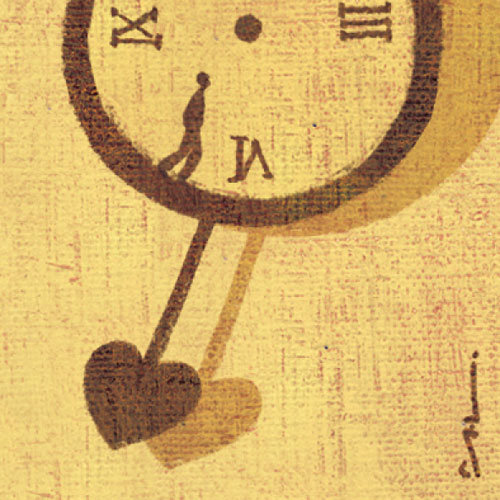A greedless heart
A greedless heart
Posted July. 30, 2021 07:20,
Updated July. 30, 2021 07:20

Here’s a poet who reminisces about his young carefree days. The poet laments the irreversible days of his youth, yet never does he attempt to resuscitate the past. Rather, he forthrightly declares, “Wise it is to cherish the moment; I thence will fritter away my whole fortune to relish every day!” This seemingly eccentric idea, which sounds like either the voice of the hedonist indulging in pleasures or the mantra of the pessimist’s sense of emptiness, may have come from the poet’s era, the period spanning the Wei, Jin and Northern and Southern Dynasties. It was a time of political turmoil and freedom of ideologies; the age rife with the spirit of resistance against authoritarian virtues of Confucianism—benevolence, righteousness, rituals, and wisdom—and a tendency toward free will and individuality. Amid this turbulent time, the poet appears to have been captivated by the Taoism’s idea of “Nothingness" or "Emptiness,” namely “freedom from avarice.”
This was the life led by Shu Guang of the late Han Dynasty. Shu Guang squandered the wealth endowed upon him by the Emperor Xuan to hold sumptuous feasts. Indeed, the poet was very purposeful in spending his fortune to the point of regularly checking how much he was left with. “If your child is wise and you leave him vast fortune, that would ruin the will of your child; if your child is stupid and you leave him vast fortune, that would make him fall into many mistakes,” Shu Guang frequently said. He was deeply absorbed in the thoughts of Laozi, and Tao Yuanming would have been attracted to him, who he thought he could relate well.





![취권하는 중국 로봇, ‘쇼’인 줄 알았더니 ‘데이터 스펀지’였다?[딥다이브]](https://dimg.donga.com/c/138/175/90/1/wps/NEWS/IMAGE/2026/02/20/133391101.1.png)

